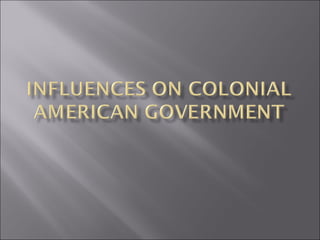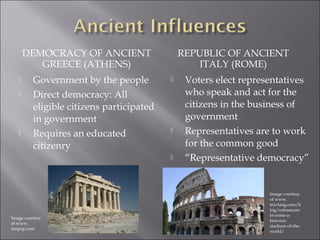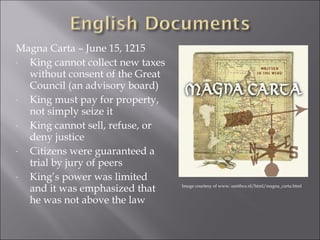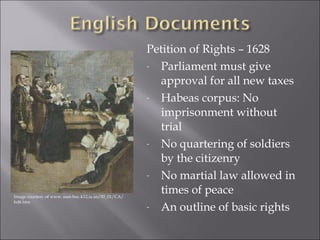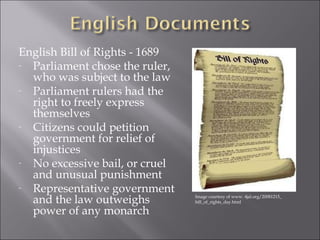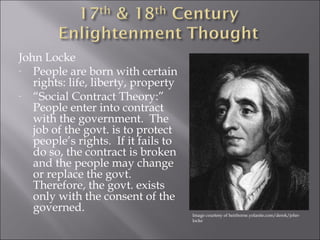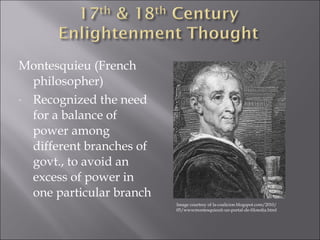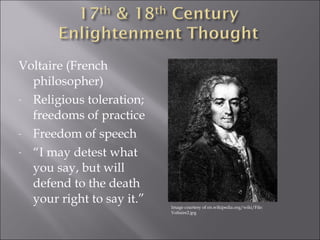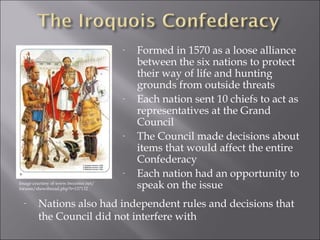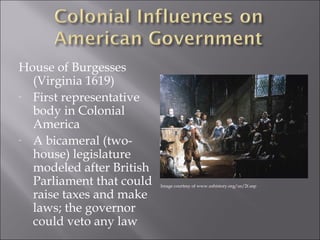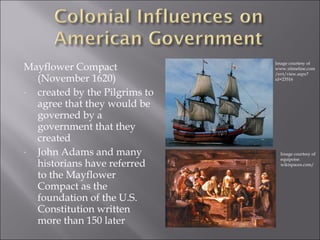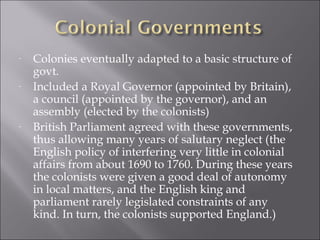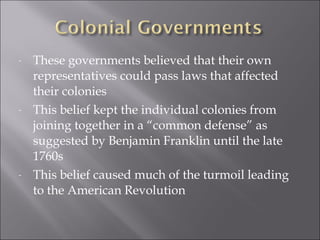This document summarizes the origins and evolution of democratic forms of government from ancient Greece and Rome to developments in England that influenced democracy in North America. It outlines the shift from direct democracy in ancient Greece to representative democracy in Rome. Key documents that advanced democratic principles in England include the Magna Carta, Petition of Rights, English Bill of Rights, and philosophies of Locke, Montesquieu and Voltaire. Colonial governments in North America incorporated elements of self-governance seen in documents like the Mayflower Compact.
